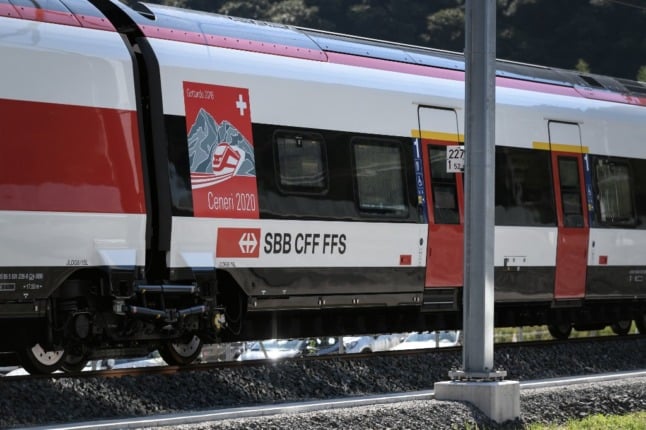Since Thursday just before midnight. there has been a general national breakdown of emergency numbers 112 and 117 (police), 118 (fire service), and 144 (ambulance)..
To find alternative numbers in your canton to dial in case of emergency visit the Alert Swiss website.
At this point, it is not known how long this disturbance will last.
Mutual recognition of Covid certificates
Starting today, the European Union and Switzerland will recognise each other’s Covid vaccination certificates.
Proof of vaccination or acquired immunity via a recognised certificate can help travellers avoid restrictions like quarantine on arrival.
But member states remain in charge of their own border rules, and reserve the right to impose emergency controls if the epidemic situation deteriorates.
“I warmly welcome that the Swiss authorities have decided to implement a system based on the EU Digital COVID Certificate”, EU justice commissioner Didier Reynders said.
READ MORE: EU agrees to recognise Switzerland’s vaccination certificate
Unvaccinated people will become infected “sooner or later”, Swiss epidemiologist says
Over the next two years, “most people who are not protected by vaccination or a previous disease will probably be infected with the coronavirus,” said Christian Althaus, epidemiologist at the University of Bern, in an interview published in the Neue Zürcher Zeitung.
If the health system will again be under heavy strain in winter, when new wave is predicted, the Covid certificate should be required to enter interior spaces, to encourage unvaccinated people to get their shots, Althaus said.
The epidemiologist also believes that it is important to explain to young people that a high vaccination rate will grant them more freedoms.
What Swiss credit cards are the cheapest and most expensive?
To answer these questions, online product comparison site Moneyland.ch scrutinised 162 cards over a two-year period. Result: If you are an occasional user, you can save almost 550 francs in the first two years by choosing the cheapest credit card.
Swisscard’s American Express Cashback credit card is the big winner.
Rather than costing money ,it brings in:around 10 francs over two years for non-frequent user, thanks to the bonus points system. With all the other cards used in the comparison study, users pay extras, for example for annual fees.
Moneyland points out, however, that these results strongly depend on the use of the card. The comparison service defines an occasional user as someone who buys 200 francs per month in Switzerland and spends a little less than 1000 euros per year abroad with his card.
The Coop Supercard (Visa or Mastercard) is in second place, costing more than 70 francs over two years, with the cashback of around 23 francs. In total, the card costs 47 francs over two years, or less than 2 francs per month.
The Ikea Family credit card, issued by Cembra Money Bank, comes third in the ranking, followed by Migros’ Cumulus Mastercard. Postfinance’s Visa and Mastercard, on the other hand are in 10th place
More of the survey’s findings can be found here.
Swiss trains are increasingly slower
This is the case on certain lines, particularly in French-speaking Switzerland between Geneva and Lausanne, where the travel time has lengthened by several minutes.
Twenty years ago it was possible to connect the Geneva and Vaud capitals by train in just 31 minutes, on condition of taking one of the two “Cisalpino” routes” linking Geneva and Lausanne without stopping, before continuing towards Valais and Italy.
The same convoy today takes 36 minutes to travel the Lake Geneva coast, and even 37 minutes when it comes to a traditional direct train, against 34 two decades ago.
However, for the Swiss Federal Railways (SBB) speed is not the priority — punctuality is.
“The surveys we conduct with our customers show us that what is really important for passengers is punctuality. They prefer a slower train by one or two minutes, as long as this guarantees better reliability of the schedule”, according to SBB spokesperson Frédéric Revaz.
READ MORE: ‘The pleasure of punctuality’: Why are the Swiss so obsessed with being on time?
If you have any questions about life in Switzerland, ideas for articles or news tips for The Local, please get in touch with us at [email protected]



 Please whitelist us to continue reading.
Please whitelist us to continue reading.
Member comments